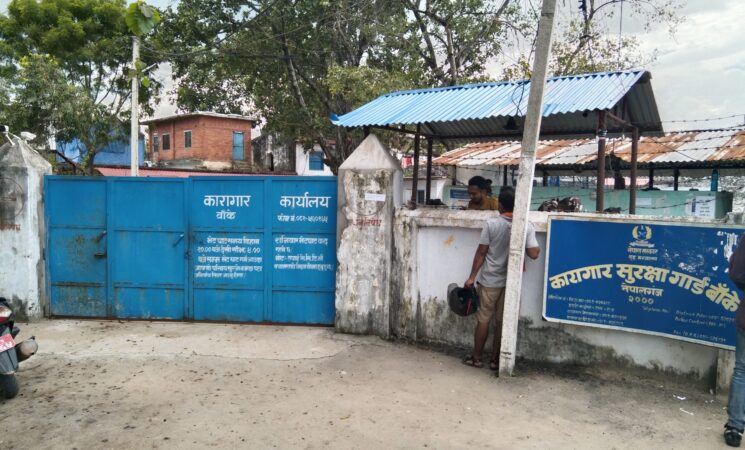28 August 2022, NIICE Commentary 8223
Saroj Deo
On 24 July 2022, the House of Representatives (HOR) passed the ‘prison management bill’ unanimously which was pending for a long time. The bill was initially distributed to the HOR members on 15 December 2019, but the discussion of the bill was adversely affected due to dissolution of HOR a couple of times. The stakeholders had been advocating for passing the bill on prison for long, reasoning that it could ensure rights of prisoners.
The United Nations (UN) standard minimum rules for treatment of prisoners obliges states to observe the fundamental principles of security of life, health and personal integrity, non-discrimination in the treatment of prisoners, and to create conditions that allow for prisoners to adjust and integrate into normal community life. The UN rule for the treatment of women prisoners and non-custodial measures for women offenders known as the Bangkok rules set some basic principles for female prisoners, regarding newly arrived prisoners, women with children, allocation, individual cleanliness, health care service, safety and security, contact with the outside world.
Women are entitled to enjoy equal protection of all human rights in every field like men, such as political, economic, social, cultural, civil, and so forth. According to the provision of different national and international law, women prisoners shall not suffer discrimination and shall be protected from all forms of violence or exploitation. They shall be detained separately from male prisoners. Moreover, women prisoners shall be supervised and searched by female officers and staff. Similarly, pregnant women and nursing mothers who are in prison shall be provided with the special facilities which they need for their condition.
In the context of Nepal, newly passed prisoner management bill have ensured many rights of inmates. One of the most highlighted laws is reproductive rights for the inmates. The legitimate couple-inmate spouse will be permitted to stay together with his/ her spouse for reproduction. Likewise, arrangements will be made to cater education to the inmates and prison administration will be responsible for it. The scheme of basic education, secondary education, open education and distance learning would be determined based on the needs of the inmates. The administrator picks educators from among the prisoners and the inmate who is picked for teaching fellow inmates, s/he is granted five days discount in imprisonment in a month where they will be benefited with remuneration and incentives. Along with this, moral education, and Yoga will be introduced to change inmates’ behaviour and install positive thoughts.
Moreover, inmates would foster self-entrepreneurship among the inmates, various sorts of income-oriented and skills-based training would be provided within the jail premises and the product and goods prepared by the inmates would be taken to the market with the cooperation of prison management.
In addition, some of the other rights ensured are the inmate willing to marry the person outside the prison will be allowed for registration of marriage, minors can stay with mothers, the pregnant inmates can give a birth to child going out of the prison; and the inmates above 65 years, or living disabilities, and suffering from mental illness and other incurable diseases will be provided special care in terms of food and health. However, if any inmates want to flee to avoid jail, they would face additional imprisonment and fine.
Nepal’s Prison Act 1962 was formulated more than six decades ago, followed by many amendments. However, none of the provisions in the act has been properly implemented and many need further amendments.
In Bangladesh, there is a jail code which comprises few acts where some rights are specially focused on the female prisoners such as separation of prisoners, foods and clothing, health care of the prison etc. Similarly, in India, rights that has been endured for women prisoners are equality before law, freedom of speech, respect of conviction for offences, protection of life and personal liberty, meet new friends and consult a lawyer, right against solitary confinement, hand cuffing, bar fetters and protection from torture, wagers in prison etc.
Although the countries of South Asia have tried to implement the basic rights ensured by the International Human Rights Standards for women prisoners, couple of rights ensured by Nepal are much liberal from them. Those include reproductive rights (the legitimate couple-inmate spouse will be permitted to stay together with his/ her spouse for reproduction) and registration of marriage (the inmate willing to marry the person outside the prison will be allowed for registration of marriage) are super liberal and adopted from west. However, it is crucial to ensure maximum rights of inmates, especially women prisoners, as possible as the government could. Moreover, it should be enacted honestly by the government of Nepal as mentioned in the bill else it would be worthless.
Saroj Deo is Research Associate at NIICE.

